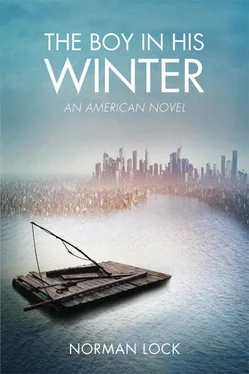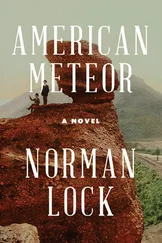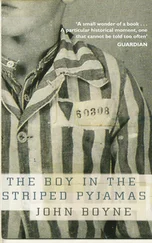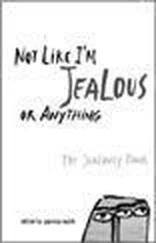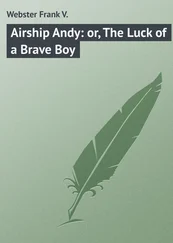“Care for a cigar?” I asked Jim, producing a panatela from a big satchel where I stashed my movable property. I had none of the other sort, and I always kept the “valuables” with me in case of robbers or Pap, who’d sell them for liquor.
“Delighted,” said Jim.
You want to know how Jim came to speak genteelly, as Tom Sawyer would have put it. Wasn’t he an unschooled middle-aged slave?
He was. And, in fact, he may not have spoken so eloquently as he will in this account of our travels together. Frankly, I can’t remember how he spoke in the nineteenth century — or me, either. I was a boy of thirteen when I left Hannibal. I’m writing, from a superior vantage point, of a distant past in which Jim and I lived in a kind of twilight country that was neither here nor there, real nor its opposite. For all I know, we may have talked like lords. We may have spoken Elizabethan English. But let me say this — and then to hell with it: Inasmuch as I am the author of this chronicle, I can, by the prerogatives granted anyone who hopes to tell even a truthful story, make Jim’s native speech the equivalent of his character, which was sweet and equable. He was not without his faults; neither of us was. We were a boy and a man, and neither more nor less than we should have been.
Having just the one, I cut the cigar in half as justly as Solomon. The leaf wrapper crackled. I imagined it resented the knife, which was armored in dried fish scales left from cleaning a pickerel for Tom’s aunt Polly. She liked pickerel, poached or cornmeal-crusted, but wouldn’t allow a catfish in her house. The Good Book forbade Christian folk to eat a fish that nature made without scales — a naked and shameful thing in the sight of God. I licked both halves of the cigar, which had begun to unravel, then handed Jim his. He smoked it happily, sitting with his feet in the water, his broad back toward me. I gazed in fascination at the scars that spoiled the beauty of skin that looked, in the bright light and under a fine sheen of sweat, like an eggplant’s in the rain. Too young and ignorant to feel horror or pity, I saw how a slaver’s whip had italicized his strong ebony back. Jim, naturally, had no idea of the thoughts crossing my mind. If they were. Maybe my mind was empty while I sat waiting for a perch to wake and gobble the worm drowning at the end of my hook. It’s tempting to imagine thoughts and conversations from those days, which are occurring right now in my head, as if I were a ventriloquist throwing my voice into a dummy.
Like gray worms, the ash at the ends of our cigars grew, unmolested by a feeble breeze that had lain down in the dust, in laziness or exhaustion. The drooping willow branches and the surface of the river displayed unruffled calm. The red bobber marking the end of the human kingdom — although not its ambitions, which recognize few boundaries — would neither bob nor drift; as a consequence, the fishing line (a length of string borrowed from a spool the grocer used to tie up parcels) formed a lazy Son top of the water, while the indifferent fish gave no thought to biting.
I don’t know when wind, willow, bobber, string, and fish roused themselves, for it was not long before Jim and I had fallen deeply asleep.
I’VE BEEN HAUNTED FOR NEARLY the whole of my life by the thought that, with a few spectacular exceptions, Jim and I may have slept during the journey. Often, the shore at either side of us looked — well, I don’t know how to say how it looked, except like something in a dream. We bore slowly down the middle of the wide river, as if we were driving along a road under a canopy of trees, their fitful leaves shedding a soft glow on the place beneath, a partial light that waved over everything like shadows scattered by the wind. Jim believed that we were under a spell cast by the old woman from Port-au-Prince who practiced voodoo in her shack in the woods beyond Hannibal. I’m certain we were awake during the clash of ironclads at Plum Point and at Vicksburg when the siege was lifted. I have not the slightest doubt we were awake in 1903 when we went ashore at Baton Rouge. The thoughts and sensations I can recall of that night are too strong in me — burned onto my mind’s eye — to have been left there by a dream. There is a deep-dyed vividness to my recollection of the nights and days when we broke the river’s enchantment and left it, for a while, to walk among men and women whose sorrows were real.
I don’t know what it means, if it means anything at all, but at St. Louis — a hundred miles or thereabouts below Hannibal, according to the map of the real world — Jim jolted into alertness and pulled in his line. On the end of it was a yellow perch, eyes fixed on what might have been death, or the glory to come for fish. And consider this: All that remained of our cigars were two delicate gray columns of ash that would not fall from our mouths until we had opened them in astonishment.
“Huck, it was me, Tom Sawyer, who untied the raft!” shouted my friend from another time and place, where I’d been a barefoot, reckless boy and Jim, a barefoot, ignorant, and scorned black man.
Maybe it was only my mind playing tricks or a waywardness of sound produced by the unceasing river itself. Maybe I’d gotten myself entangled in Tom’s dream. Or in Jim’s. How strange and alien must be the dreams of a black man and a slave! How strange my own from those long-ago days! I would not recognize them now.
You want to know if it rained while Jim and I rafted down the Mississippi.
I don’t remember, but if it did, then the rain fell as if its only purpose were to refresh us. It seems to me — while I lie here on the sunporch of what will surely be my last home, save one — that it was always summer then, although I recall snow falling on the river and on the shore, which looked, after snow’s patient knitting, like a kind of Russian steppe, but without harshness or cold. But maybe this is true of the weather of childhood, which appears, in recollection, to have known no other season than summer. We must have been sometimes cold and sometimes wet. It could not have been otherwise.
We did not stop our southerly flight (is that what it was?) at St. Louis, because the unholy noise on the broad wharves shamed us. A fat white-coated auctioneer was hammering away the lives of black men, women, and children. I remember his fancy cravat and a dog sprawling in the cool shadow of cotton bales. I remember, also, the alphabet of suffering inscribed on Jim’s back when he turned away. I may’ve mumbled some words of compassion, but more than likely, I kept silent. Of what earthly use would such have been to Jim or to the abject beings standing wordlessly in the insolent sun, waiting to be sold? No, we did not stop in St. Louis in 1835 and would not stop until we got caught by the Little Ice Age, in 1850.
I should tell you about our life on the raft.
WE CAME BY THE RAFT DISHONESTLY, if truth be told, although we did not mean to use it for more than an afternoon. I never could’ve imagined that, by the time I lost it below New Orleans, the raft’s owner, Peter Carlson, would have been dead and buried more than a century and a half earlier.
You’re about to object that it did not happen this way. In fact, my story seems more and more inclined to go its own way, with small regard for the truth. Isn’t that what you’re thinking?
Does anyone really know how it happened? Do you? Did Mark Twain? Did it really happen at all? Sometimes I wonder. So when you play the tapes back, make damned sure you type it the way I say it. It’s to be my book, after all. Later, you can write your own version. So, where in the hell was I?
Right. We came by the raft dishonestly. We’d only meant to do a little fishing. It was cool and nice under the big willow with its whips trailing over the water. Christ, it was a scorcher of a day! The whole town must have fallen asleep, along with Jim and me. When we finally did wake — if we ever did — the raft was too far along in space and time to return it. We could no more reverse ourselves, our motions in all five dimensions, than fly to the moon. I told you about the moving-picture show I saw in Baton Rouge. It was made by a Frenchman, a magician, whose name I’ve forgotten — that and a good deal more besides.
Читать дальше
